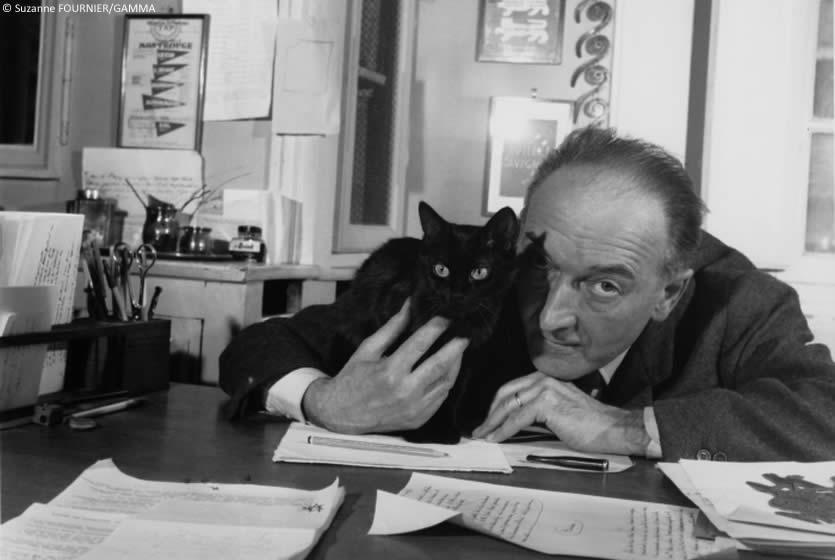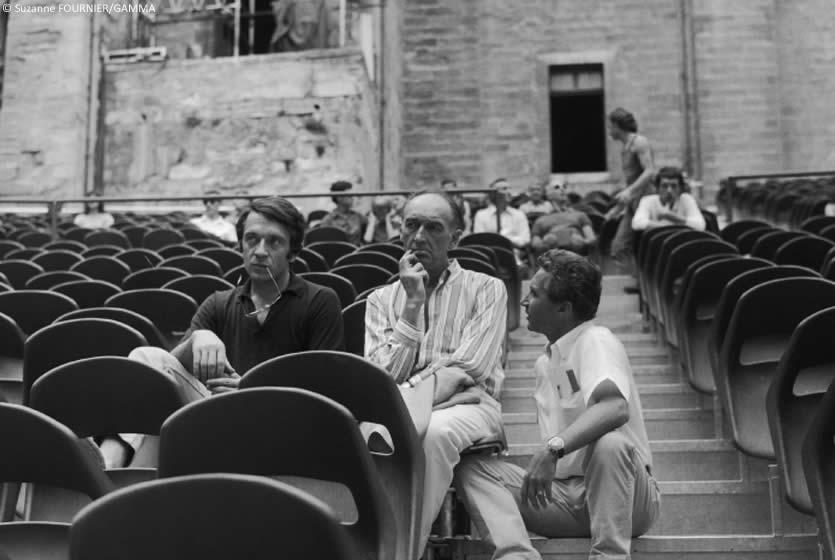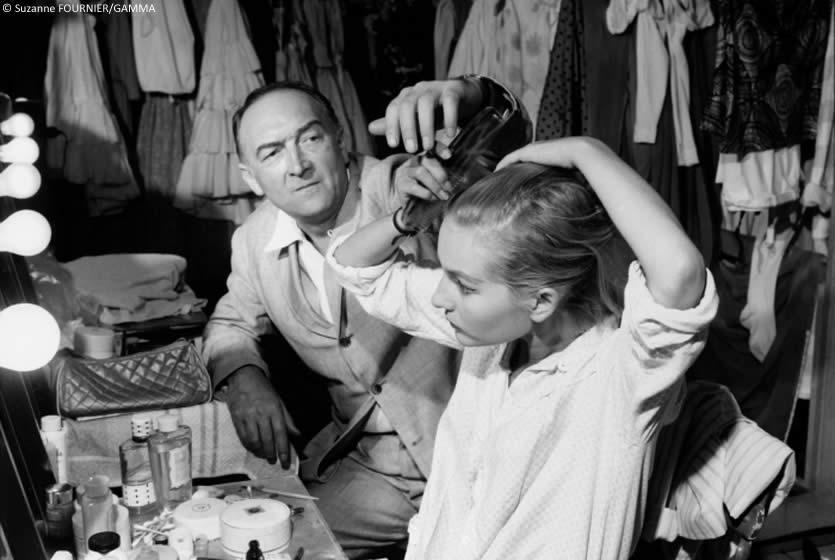

What a long way it has come since that month of September 1947 when Jean Vilar and his theatre company inaugurated a "Week of Dramatic Art in Avignon" ! Through them, Shakespeare's spirit took possession of the imposing and grandiose setting of the main courtyard of the Popes' Palace. It was a magical meeting that consecrated, for better or for worse, the marriage of Theatre and the ancient City of the Popes.
For the first few years, the festival was the work of one man, Jean Vilar, who committed his militant determination to bring to a greater number, and in particular to the young, what was still an elitist theatrical culture. Gerard Philipe, Jeanne Moreau, Georges Wilson, Daniel Sorano, Maria Casares and many other actors of the troupe struggled to keep the project going, assisted by the population of Avignon who put a lot in to the venture. The spectators enthusiastically watched the reformulation of a theatre up to then confined to conventional theatre houses to a theatre that takes risks and finds a fervent and impassioned public.
The Festival enjoyed a growing success, performances of "Cid" by Corneille, of "Richard II" by Shakespeare or of "Prince of Hombourg" by Kleist in the Palace's Main Courtyard have entered in to the legend of Avignon and in to the history of theatre.
From 1964 on, Jean Vilar dedicated all his energies first and foremost to managing the Avignon Festival that he wanted to open to other forms of artistic expression. He invited other directors, he included dance and cinema. He inaugurated new performance spaces in the city. For four weeks, the festival takes possession of the city. Through theatre, Vilar wanted to make the festival a center of dialogue and reflection about society.
In 1968, just after the student demonstrations in the month of May, Jean Vilar faced a radical and anti-establishment youth.
He died on May 28, 1971.
Paul Puaux, his faithful friend and assistant took up the torch and pursued the venture of a festival that more than ever was a big event. It opened itself to new forms of expression and other experiences: workshops, cinema, readings, debates, music, children's theatre. When Paul Puaux resigned in 1979 to dedicate himself to the direction of the Maison Jean Vilar, it was the end of a cycle.
Nominated director, Bernard Faivre d'Arcier got down to the job, hen Alain Crombecque from 1985 to 1992, and once again Bernard Faivre d'Arcier to 2003.
Hortense Archambaud and Vincent Baudriller direct the Festival d'Avigon until 2004.
The Avignon Festival has henceforth reached adulthood ; it is summer's not-to-be-missed cultural happening. It offers a view of contemporary theatrical creation in France and opens up perspectives towards the future and other theatrical traditions. It has a faithful and constant public, more than 100 000 places are sold each year. If it is no longer a moment of effervescence arousing fervor et passion, it still remains a benchmark, an illuminating testimony to the vitality of the arts and living theatre in these uncertain times when cultural values have been put into question.
Thanks to Melly Puaux of the Association Jean Vilar
who helped the writing of this text

Jean Vilar at his office, Rue De L Estrapade, Paris, 1966.

Jean Vilar and Jean-Pierre Cassel, Cour d'Honneur, Palace of the Popes, 1963

Jean Vilar and Dominique, his daughter, backstage, before playing La Guerre de Troie
Where to sleep?
Maison Chenet, Entre Vigne et Garrigue
165 EUR/night*
Bed and breakfast - Avignon and the surroundings